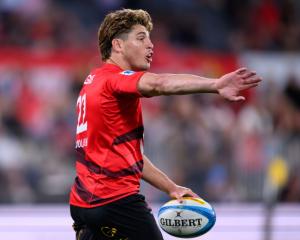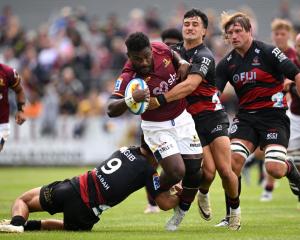
The Otago Community Head Impact Detection study (Orchid), a collaborative project between World Rugby, Prevent Biometrics, New Zealand Rugby, Otago Rugby and the University of Otago, was released recently after two years of research.
The study, using Prevent Biometrics mouthguards to measure the g-forces on the head, measured more than 17,000 head acceleration events from 328 male community players from under-13 to premier.
It revealed 86% of forces experienced in the men’s community game are comparable, or less than, those in everyday activities such as running or jumping, and 94% of forces are lower than what was previously recorded from people riding a rollercoaster. The highest measured forces were the result of poor tackling techniques or breakdowns.
Reflecting a week on from the study being released, Kinley said while he initially found some of the data surprising, it made sense as people became stronger in their latter years.
"The message that I’ve got from all of this, too, is we’ve got to be really careful, and mindful, that we’re not applying what’s happening at the high-performance end to the community end, to the younger end.
"I think we do see in the high-performance [games] head knocks, and we see injuries, and we think that’s what it’s like for the whole game, but it’s not."
Kinley was pleased community-level data was now available and hoped it would alleviate concerns.
"The big thing for me is that parents know that their children aren’t getting exposed to the same level of force as the high-performance players are.
"I think that would give me a degree of comfort as a parent."
The information was "critical" moving forward. It allowed Otago Rugby to reassess whether more training or different techniques were needed, and helped form its coaching programmes.
He felt the response to the study had been "really positive".
"I think it’s put a line in the sand that we need to continue the good work that we’re doing.
"I think it also shows that the continued focus on tackle technique, particularly as players come into those teenage years, is an incredibly important part of the game that we’ve got to keep growing."
The study would continue in Otago with female community players next year.












